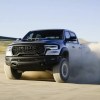
You Don’t Have to Be Afraid of Buying a Discontinued Car
So, you’ve been car shopping and the model you have been eyeing is being discontinued. It’s normal to feel sad or even discouraged by this news, but it doesn’t have to be a dealbreaker.
Car discontinuations are pretty common, even for auto industry giants like GM. Buying a discontinued model is appealing because of the lower price, but there are other elements that you need to consider. Here is what you need to know.
Why cars get discontinued
A discontinued car doesn’t necessarily mean that the particular model is bad. Sometimes fan favorites like the VW Beetle and Chevy Impala just decline in popularity, which results in low sales. Consumer buyer preferences change and so do driving habits. Other times carmakers decide to sunset older models to make way for newer ones. It really just depends on the manufacturer’s long-term business plan.
Don’t act too fast
If you are looking at models like the Buick Regal or even a Cadillac sedan, you’re going to want to shop around and wait for the best deal if you can help it. Dealers are highly incentivized to get rid of these models which translate to increased savings for you. Also, given our current environment, carmakers are more inclined than ever to make a sale.
What about parts and maintenance support?
A big part of the fear associated with buying a discontinued model relates to maintenance support in the future. You really don’t have to worry about future maintenance support though. Congress has implemented laws like the Motor Vehicle Owners’ Right to Repair Act to ensure vehicle owners get the repair help they need from carmakers and mechanics.
Carmakers are also required by law to keep the necessary parts available to service the models they discontinue in the future. For instance, GM still provides repair support for brands like Pontiac and Saab.
Keep resale value in mind
Unsurprisingly, discontinued models tend to depreciate in value quicker than remaining ones. They also aren’t likely to be hot commodities in the used car market. However, sometimes discontinued models become more valuable over time or are even brought back to life.
The Ford Ranger was discontinued in 2011 and was reintroduced based on consumer demand in 2019. There’s a similar story with the revival of the Honda Passport. You really just never know. It usually comes down to consumer preferences and the general feeling of nostalgia.
Don’t forget about reliability ratings
As you’re considering your options, make sure to prioritize predicted reliability scores. Predicted reliability scores help to determine how dependable a car is over time. These scores also help forecast significant issues on a vehicle.
The final verdict
Deciding whether or not to buy a discontinued model is a personal choice. And just like buying any other car, there are both pros and cons. If potential resale value is a priority for you, maybe a discontinued model isn’t the best option. But if you simply enjoy the model and like the lower price, buying a discontinued model makes sense.


